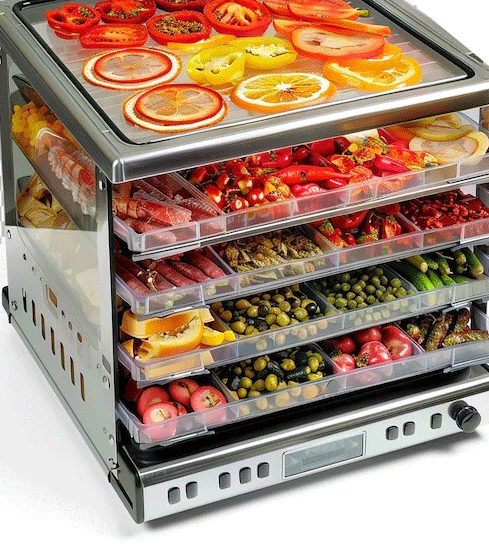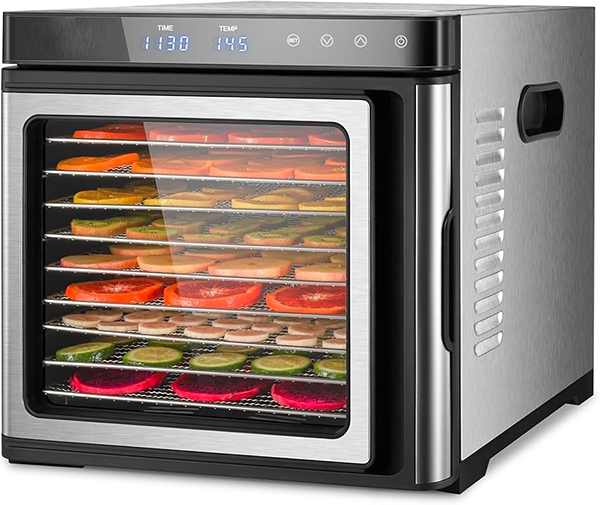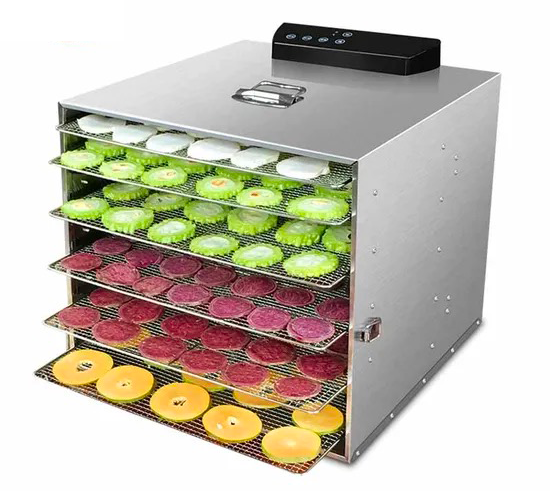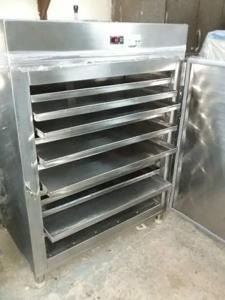
Content Menu
● Understanding Food Drying
>> The Science Behind Drying
● Types of Food Dryers
>> Condenser Dryers
>> Heat Pump Dryers
● Comparing Performance
● Choosing the Right Dryer
● Practical Applications
● Maintenance Tips for Food Dryers
● Future Trends in Food Drying Technology
● Conclusion
● Frequently Asked Questions
>> 1. What is the primary function of a food dehydrator?
>> 2. Which type of dryer is more energy-efficient?
>> 3. Can I use both types of dryers for fruits?
>> 4. How do I maintain my food dehydrator?
>> 5. What factors should I consider when choosing a dehydrator?
In the realm of food preservation, drying is one of the oldest techniques employed to extend the shelf life of various foods. This method not only helps in preserving fruits, vegetables, and meats but also enhances their flavors. As a manufacturer of food drying machines, it is essential to understand the differences between dryer technologies, particularly between condenser and heat pump dryers. This article will delve into these two types of dryers, their mechanisms, advantages, and how to choose the right one for your needs.

Understanding Food Drying
Food drying involves removing moisture from food items to inhibit the growth of bacteria, yeasts, and molds. The process reduces the water content to about 5-20%, which significantly extends the shelf life of the food. Modern food dehydrators utilize controlled heat and airflow to achieve this goal efficiently.
The Science Behind Drying
The drying process relies on the principles of heat transfer and moisture evaporation. When heat is applied to food, it increases the temperature of the food surface. This heat causes moisture within the food to evaporate into the air. The efficiency of this process depends on several factors, including:
- Temperature: Higher temperatures generally increase evaporation rates but can also lead to nutrient loss if too high.
- Airflow: Adequate airflow helps carry away moisture-laden air, allowing for more efficient drying.
- Humidity: Lower humidity levels in the surrounding environment facilitate faster drying.
Understanding these principles can help manufacturers optimize their drying machines for better performance.
Types of Food Dryers
Condenser Dryers
Condenser dryers are designed to remove moisture from food by heating the air and circulating it over the food items. The moisture-laden air is then cooled in a condenser unit where water droplets form and are collected in a tank or drained away.
Advantages:
- Faster Drying Times: Due to higher operating temperatures, condenser dryers can dry foods more quickly than heat pump dryers.
- Lower Initial Cost: Generally, condenser dryers are less expensive upfront compared to heat pump models.
- Simplicity: They often have straightforward designs and are easier to operate without complex settings.
Applications:
Condenser dryers are particularly effective for operations requiring quick turnaround times. For example:
- Commercial Snack Production: Ideal for producing dried fruit snacks or vegetable chips in bulk.
- Meat Processing: Suitable for making jerky where rapid moisture removal is essential.
Heat Pump Dryers
Heat pump dryers operate on a different principle. They use a closed-loop system that recycles hot air within the machine. The process involves extracting moisture from the air using an evaporator, which cools down the air before it is reheated and recirculated.
Advantages:
- Energy Efficiency: Heat pump dryers consume significantly less energy than condenser dryers due to their ability to recycle hot air.
- Gentler on Food: The lower drying temperatures help preserve more nutrients and flavors in the food.
- Longer Lifespan: These machines tend to have a longer operational life due to their efficient design and lower stress on components.
Applications:
Heat pump dryers are often preferred in settings where quality preservation is paramount:
- Herb Drying: Excellent for retaining volatile oils and flavors in herbs like basil and oregano.
- Fruit Drying: Ideal for delicate fruits that require gentle drying processes to maintain their texture and taste.

Comparing Performance
When it comes to performance, both types of dryers have their unique benefits:
| Feature | Condenser Dryer | Heat Pump Dryer |
| Drying Speed | Faster | Slower |
| Energy Consumption | Higher | Lower |
| Initial Cost | Lower | Higher |
| Nutrient Preservation | Moderate | High |
| Maintenance | Simple | More complex |
Choosing the Right Dryer
Choosing between a condenser dryer and a heat pump dryer depends on several factors:
- Volume of Food: If you need to dry large quantities quickly, a condenser dryer may be more suitable.
- Energy Costs: If you are concerned about energy consumption and costs over time, a heat pump dryer is likely the better choice.
- Type of Food: For delicate foods that require gentle drying processes, heat pump dryers are preferable as they operate at lower temperatures.
- Budget Considerations: While initial costs are important, consider long-term savings on energy bills when making your decision.
Practical Applications
Both types of dryers can be used for various applications in food processing:
- Fruits and Vegetables: Ideal for making snacks like dried fruits or vegetable chips. The choice between dryer types may depend on whether speed or quality preservation is more critical for your product line.
- Meats: Perfect for jerky production where moisture removal is crucial for preservation. Here, a faster drying process can be beneficial but must balance with quality considerations.
- Herbs and Spices: Effective in retaining flavor while extending shelf life. Heat pump dryers excel in this category due to their gentle approach.
Maintenance Tips for Food Dryers
Regardless of which type of dryer you choose, proper maintenance is crucial for ensuring longevity and optimal performance:
- Regular Cleaning: Clean trays and components regularly to prevent buildup that can affect airflow and efficiency.
- Check Seals: Inspect door seals frequently; worn seals can lead to energy loss and inefficient drying.
- Monitor Temperature Settings: Ensure that temperature settings align with recommended levels for specific foods to avoid nutrient loss or spoilage.
Future Trends in Food Drying Technology
As technology advances, we can expect several trends in food drying:
- Smart Technology Integration: More machines will incorporate smart technology allowing users to monitor and control drying processes remotely via smartphones or tablets.
- Sustainability Focus: There will be an increasing emphasis on energy-efficient designs that minimize environmental impact while maximizing performance.
- Enhanced Automation: Automation features will streamline operations in commercial settings, reducing labor costs while improving consistency in product quality.
Conclusion
In conclusion, both condenser and heat pump dryers offer unique advantages that cater to different needs in food processing. Understanding your specific requirements—whether it be speed, energy efficiency, or preservation quality—will help you make an informed decision. As a manufacturer providing OEM services for food drying machines, it's essential to align your product offerings with these insights to meet market demands effectively.

Frequently Asked Questions
1. What is the primary function of a food dehydrator?
A food dehydrator removes moisture from food items to preserve them and extend their shelf life.
2. Which type of dryer is more energy-efficient?
Heat pump dryers are generally more energy-efficient as they recycle hot air during the drying process.
3. Can I use both types of dryers for fruits?
Yes, both condenser and heat pump dryers can effectively dry fruits; however, heat pump dryers may retain more nutrients due to lower drying temperatures.
4. How do I maintain my food dehydrator?
Regular cleaning of trays and components is essential. Ensure proper airflow by keeping vents clear and check seals for any wear over time.
5. What factors should I consider when choosing a dehydrator?
Consider drying speed, energy efficiency, initial cost, maintenance needs, and the types of foods you plan to dehydrate.












